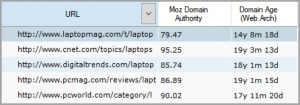
In most cases, a product or a service search on Google ends up as a local search. Even if you don’t specify your location, Google will still show you local results. Your IP address tells Google where you are from – which country, which state and which city.
A win-win situation
Google Keyword tool allows advertisers to target specific locations. The tool acknowledges that people tend put the least amount of effort when they search something online. If they are searching for house painting services, they assume the search engine would show them results from their locality.
This is a win-win situation for advertisers as well as searchers. A searcher doesn’t have to type in his location everytime he searches something on Google.
How this benefits advertisers? They don’t have to depend on whether or not a searcher specifies his location, even though 1 out 3 searches are location-specific. Even if the searcher doesn’t specify it, their ads will still be displayed to him.
This is a win-win situation for advertisers as well as searchers. A searcher doesn’t have to type in his location everytime he searches something on Google.
How this benefits advertisers? They don’t have to depend on whether or not a searcher specifies his location, even though 1 out 3 searches are location-specific. Even if the searcher doesn’t specify it, their ads will still be displayed to him.
Local landing pages
How local landing pages are relevant when Google automatically interprets product/service searches as local searches and display local businesses on the SERP and also on the paid result spot?
Has this question popped up in your mind? This is an important question. In fact, you can make an educated guess from it and raise a more serious question.
You may ask what’s the need for local SEO when Google will eventually feature local businesses against queries related to products and services.
The competition
The reason local SEO is still relevant is the competition. There are tons of businesses falling under each product or service category, out of all – only ten will occupy Google’s first page.
Which ten?
That nobody knows, and that’s why there’s a competition, that’s the reason there’s a need for local SEO and more importantly, local landing pages.
Local businesses
A local business doesn’t need local landing pages but a global brand does. It doesn’t take too much grey-matter to understand why. A local business operates out of a specific location, and it doesn’t need to highlight its presence in any other location because it’s not present anywhere else.
Let’s say you have an auto-recycling store in Miami, Florida. The store is listed with all the Yellowpages. For your business to be featured on the SERP, any one of the following two would have to happen:
- A user from Miami, Florida searching for an auto-recycling store.
- Anyone searching with a key-phrase that either has the word Miami or Florida in it.
Your business will not be featured on the SERP if the searcher specifies another location in the keyword or if he’s not from Tennessee. Hence, a local business doesn’t need a separate landing page.
Global brands are not SABs (single-location service area businesses). They have multiple locations across several nations, or across different states in one particular nation. Those brands need local landing pages for reasons below:
- Unless there’s a unique page for a particular location (city/state), organic ranking against relevant search queries is incredibly difficult.
- If a brand has physical outlets across various cities, then it should have an equal number of landing pages, each of them featuring the phone number and street address of the respective outlet.
In layman’s terms, in the absence of local landing pages, global brands can never have local customers.
Local landing page optimization
Some analysts hold that global brands can’t harness Yellowpages and local directories because they have more than one local landing pages and local business listings ask for homepage URL.
True, but the best part about local landing page optimization is the brand enjoys more control over the optimization process. This is because the brand can
> Localize the meta properties of each individual local landing page.
> Put localized content and avoid content marketing mistakes.
> Add location specific consumer reviews.
All these are in a brand’s control, no directory decides how he’s going to optimize the content on the page.
Let’s dive this discussion with more details:
#Meta property localization: The targeted meta properties are URL, title tag, meta description and schema markup. All these meta data should contain the name of the location along with the product/service name and the business name.
#Localized content: This one’s easy. Optimize the content of each local landing page by mentioning the name of the respective region and adding region-specific references. But don’t overdo it, otherwise the content would be spammy.
#Consumer reviews: Consumer reviews are for building trust. For each landing page representing a particular region, the review should come from the customers who belong to that region. Make sure the reviews are favorable and endorse your product or your service.
Are they doorways?
Doorways are created for the sole purpose of capturing leads. In one of my previous articles, I explained what type of pages are likely to be considered as doorways. Going by that analysis, whether a local landing page is a doorway or not depends on whether it was created only for the purpose of capturing leads.
In order for not to be declared as a doorway, a local landing page must have the following aspects to it:
- No content duplication: At times, two local landing pages have same content, all different keywords and different address details. This is a big NO (In caps).
- Useful content: The content should be useful. It should provide enough information (And useful information) for the people from the targeted location. In other words, the pages shouldn’t be created to draw traffic.
- Semantic variations: Instead of using the same old keywords, use their semantic variation without changing the location.
If the above requirements are met, then Google probably won’t consider those pages as doorways.
Conclusion
Google doesn’t have any official stand on local landing pages. Hence, we have to figure out the best practices ourselves. Optimizing pages for local search is necessary, but we should follow the safe practices to avoid any penalty.
Image Courtesy: pixabay.com
Digital & Social Articles on Business 2 Community(43)






